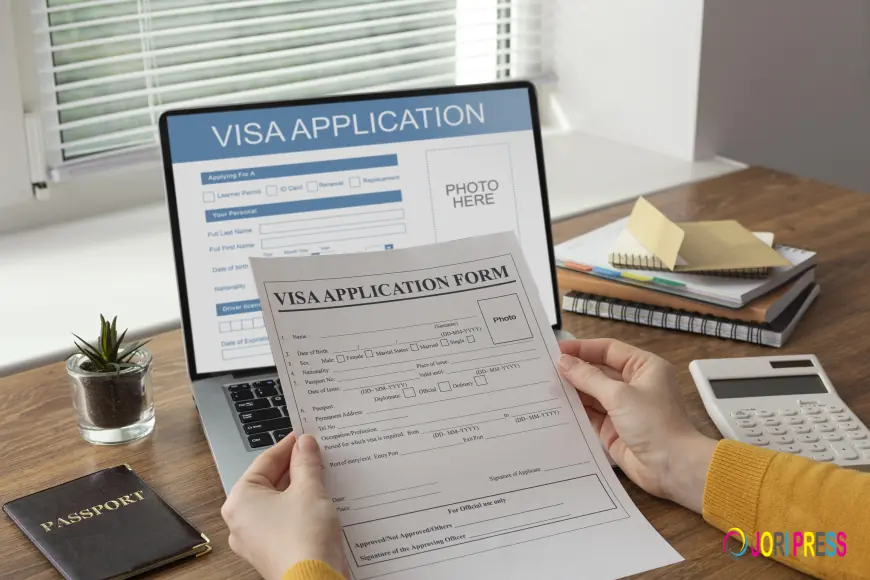How to Prove Your Substantial Ties to Australia for the Resident Return Visa
Australia remains one of the most sought-after countries for permanent residency, offering stability, safety, and opportunities. But if you’ve spent significant time overseas, you may need to show that your connection to the country is still genuine and ongoing when applying for a Resident Return Visa (RRV). Proving your “substantial ties” is a critical part of the process — and getting it wrong can lead to visa delays or even refusal.

This guide explains what substantial ties mean, the types of evidence that count, and how to present your case effectively for the best chance of success.
Understanding the Resident Return Visa
The Resident Return Visa allows Australian permanent residents or former residents to re-enter Australia after their travel facility has expired. It helps maintain your permanent residency status even if you’ve lived abroad for work, family, or other reasons.
There are two main subclasses:
-
Subclass 155 – For residents who meet the residency requirement or can demonstrate strong ties to Australia.
-
Subclass 157 – For those with limited residence history but compelling reasons for their absence.
Since 2025 immigration rules have become more detailed, proving substantial ties is now more important than ever to show your ongoing connection to the country.
What Are “Substantial Ties” to Australia?
“Substantial ties” refer to meaningful and continuing connections that demonstrate your commitment to Australia. The Department of Home Affairs groups these ties into four main categories: personal, professional, business, and cultural.
These connections prove that your absence is temporary and that you still have strong reasons to return. For example, maintaining family relationships, property ownership, or professional involvement in Australia can all count as valid evidence.
1. Personal Ties
Personal ties are among the strongest forms of connection you can show. These demonstrate that Australia remains your home base, even if you live elsewhere for a time.
Examples of personal ties include:
-
Having close family members (spouse, parents, or children) who live in Australia.
-
Owning or renting a home in Australia.
-
Keeping an active Australian bank account or Medicare membership.
-
Holding an Australian driver’s licence or participating in community groups.
Tip: Include recent evidence like bills, tax returns, or utility statements that show your ongoing activity within Australia.
2. Professional Ties
If you’ve worked abroad but still maintain employment or business links to Australia, these can serve as strong proof of substantial ties.
Examples include:
-
Working remotely for an Australian company.
-
Having an Australian superannuation account.
-
Continuing membership with professional associations based in Australia.
-
Holding or renewing professional licences in Australia.
Tip: Provide payslips, tax records, or letters from employers verifying your continued employment or membership. This helps demonstrate your ongoing contribution to Australia’s economy.
3. Business Ties
For business owners or investors, demonstrating your financial and operational involvement in Australia is crucial. These ties show you have an ongoing economic interest in the country.
Examples of business ties include:
-
Owning or managing an Australian-registered company.
-
Paying Australian taxes or employing local staff.
-
Owning commercial property or business assets.
Tip: Submit official documents such as Australian Business Number (ABN) records, company registration certificates, or financial statements. The more current and detailed your documentation, the stronger your case.
4. Cultural Ties
Cultural connections highlight your social or community involvement in Australia. These ties demonstrate that you contribute to the cultural or social fabric of the country.
Examples of cultural ties include:
-
Active participation in Australian-based religious or cultural organisations.
-
Volunteering for Australian charities or community groups.
-
Supporting Australian events or community initiatives, even while abroad.
Tip: Provide proof such as membership cards, donation receipts, or letters from community organisations confirming your ongoing involvement.
How to Organise Your Evidence Effectively
When applying for a Resident Return Visa, presenting your documents clearly can make all the difference. Here’s how to do it:
-
Group your documents by category. Separate them under personal, professional, business, or cultural ties.
-
Ensure documents are current. Outdated records may weaken your case.
-
Explain your absence. If you’ve been overseas for a long time, include a statement detailing your reasons and future plans to return.
-
Avoid unnecessary paperwork. Focus on strong, verifiable evidence instead of overwhelming the assessor with irrelevant documents.
Tip: A short cover letter summarising your situation and highlighting your strongest ties can also help the case officer understand your story quickly.
Common Mistakes to Avoid
Many RRV refusals happen because applicants overlook simple details. To stay on track, avoid these common mistakes:
-
Submitting old or irrelevant documents.
-
Failing to explain why you were abroad.
-
Providing inconsistent information in forms and documents.
-
Ignoring small but important ties like tax records or bank activity.
Double-check your application before submission to ensure everything aligns.
Final Thoughts
Proving your substantial ties to Australia is one of the most important parts of a successful Resident Return Visa application. By showing clear personal, professional, business, or cultural links, you demonstrate that your relationship with Australia remains strong and genuine.
The key is to prepare early, stay organised, and present your evidence clearly. With the right approach and documentation, you can make your case confidently and maintain your permanent residency status — keeping your path to Australia open for the future.
What's Your Reaction?
 Like
0
Like
0
 Dislike
0
Dislike
0
 Love
0
Love
0
 Funny
0
Funny
0
 Angry
0
Angry
0
 Sad
0
Sad
0
 Wow
0
Wow
0

















































